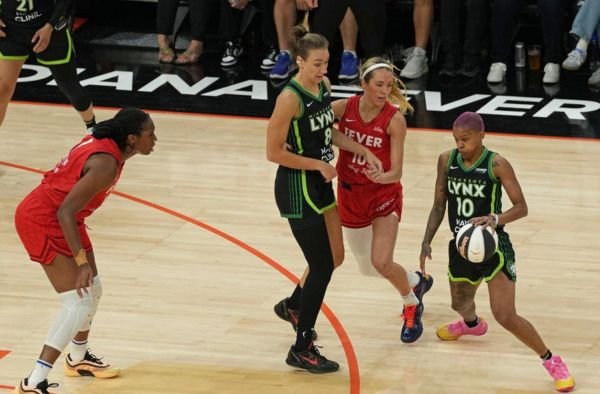The WNBA is making history once again. In a major announcement, the league revealed it will expand to Cleveland, Detroit, and Philadelphia, bringing the total number of teams to 18 by 2030. This bold move marks the latest chapter in the league’s rapid growth and reflects the surging popularity of women’s basketball across the United States.

Expansion Timeline: When Will the New Teams Debut?
Each city will join the WNBA in succession, ensuring a steady and strategic rollout:
- Cleveland: Begins play in 2028
- Detroit: Joins in 2029
- Philadelphia: Launches in 2030
This expansion follows the addition of teams in Toronto and Portland, both set to debut in 2026, and comes on the heels of Golden State’s Valkyries joining the league this year.
Why Cleveland, Detroit, and Philadelphia?
The league’s decision is rooted in careful analysis. According to WNBA Commissioner Cathy Engelbert, these cities were chosen based on their strong basketball cultures, committed NBA-affiliated ownership groups, and robust local support. Each city brings something unique to the table:
Cleveland: Returns to the WNBA for the first time since the Rockers folded in 2003. The new team will be operated by Rock Entertainment Group, owners of the NBA’s Cavaliers.
Detroit: Revives the city’s rich WNBA history after the Shock relocated in 2009. The new franchise will benefit from NBA Pistons ownership and a new, dedicated facility.
Philadelphia: Marks the city’s WNBA debut, with a new arena planned and strong backing from the 76ers’ ownership group.
The Impact: Growth, Investment, and Opportunity
This expansion is about more than just adding teams. It’s a reflection of the growing demand for women’s basketball, increased investment, and a commitment to providing more opportunities for athletes and fans alike.
Key Highlights of the Expansion
- $250 million expansion fee per team, a record for the league.
- All three franchises are backed by NBA ownership groups, ensuring stability and access to top-tier facilities.
- Each team will invest in new practice facilities and amenities for players, raising the standard for women’s professional sports.
A Return to Tradition—and a Step Forward
For Cleveland and Detroit, this is a homecoming. The Cleveland Rockers and Detroit Shock were both founding WNBA franchises. While the Rockers never won a title, the Shock captured three championships before relocating and eventually becoming the Dallas Wings. Philadelphia, meanwhile, is breaking new ground as it welcomes its first-ever WNBA team.
Ownership groups in Cleveland and Detroit have not yet decided on team names, but both have indicated they will consult with fans and consider the legacy of the Rockers and Shock before making a decision.
What’s Next for the WNBA?
With these additions, the WNBA is set for unprecedented growth. The league is also negotiating a new collective bargaining agreement and exploring expanded TV rights, all while welcoming a new generation of stars and fans. The future of women’s basketball has never looked brighter.
FAQs: WNBA Expansion to Cleveland, Detroit, and Philadelphia
Q1: When will the new WNBA teams start playing?
A1: Cleveland will begin in 2028, Detroit in 2029, and Philadelphia in 2030.
Q2: Who owns the new franchises?
A2: All three teams are backed by NBA ownership groups: the Cavaliers in Cleveland, the Pistons in Detroit, and the 76ers in Philadelphia.
Q3: Will the Cleveland and Detroit teams use their old names?
A3: Ownership groups are considering bringing back the Rockers and Shock names but will consult with fans before making a final decision.
Q4: Why did the WNBA choose these cities?
A4: The league selected Cleveland, Detroit, and Philadelphia for their strong basketball traditions, NBA infrastructure, and enthusiastic local support.
Q5: How does this expansion benefit the WNBA?
A5: The expansion increases league visibility, creates more roster spots, and brings women’s basketball to new and returning markets, fueling further growth.
Conclusion
The WNBA’s expansion into Cleveland, Detroit, and Philadelphia is a watershed moment for women’s sports. By adding three vibrant cities with deep basketball roots and NBA-level resources, the league is poised for a new era of growth, excitement, and opportunity. Fans in these cities—and across the country—have plenty to look forward to as the WNBA’s future gets even brighter.


